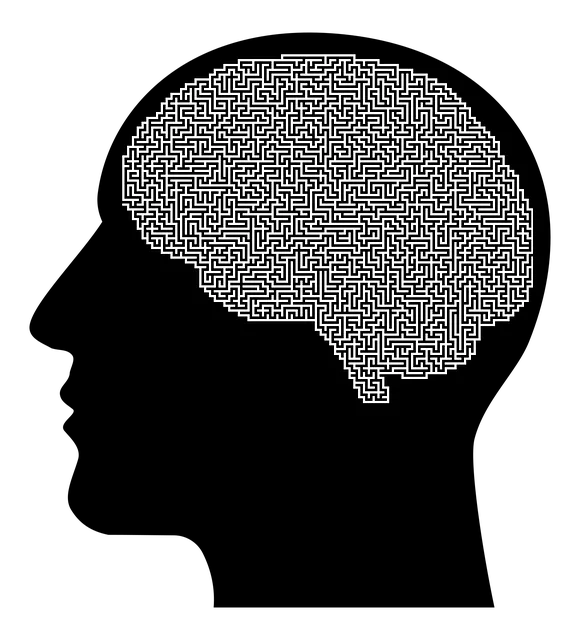Wheat Ridge Kaiser Permanente Mental Health leads in innovative diagnostic practices, bridging healthcare gaps with its Community Outreach Program. By integrating Compassion Cultivation Practices and Self-Awareness Exercises, they ensure accurate assessments through nuanced understanding of patient experiences. Advanced assessment methods, technologies, and culturally sensitive care personalize treatment, enhancing diagnosis accuracy and improving mental health services for underserved communities.
Mental illness diagnosis accuracy is a critical aspect of patient care, and efforts to enhance it are continually evolving. This article explores innovative strategies employed by Wheat Ridge Kaiser Permanente Mental Health, focusing on three key areas: advanced diagnostic tools, cultural competence, and data-driven improvements. By delving into current challenges, implementing cutting-edge methods, promoting inclusive practices, and leveraging data analytics, Wheat Ridge Kaiser Permanente is at the forefront of revolutionizing mental health diagnosis, ensuring more accurate and effective patient outcomes.
- Enhancing Diagnostic Tools and Techniques at Wheat Ridge Kaiser Permanente Mental Health
- – Exploring current challenges in mental illness diagnosis
- – Implementation of advanced assessment methods and technologies
Enhancing Diagnostic Tools and Techniques at Wheat Ridge Kaiser Permanente Mental Health

Wheat Ridge Kaiser Permanente Mental Health has been at the forefront of enhancing diagnostic tools and techniques to improve the accuracy and effectiveness of mental illness diagnoses. They have implemented a comprehensive Community Outreach Program that bridges the gap between healthcare services and underserved communities, ensuring earlier intervention and more inclusive care. This program not only raises awareness about mental health but also fosters an environment where individuals feel comfortable seeking help.
Additionally, Wheat Ridge Kaiser Permanente has incorporated Compassion Cultivation Practices and Self-Awareness Exercises into their diagnostic process. These practices promote a deeper understanding of the patient’s experiences and emotions, allowing mental health professionals to make more nuanced assessments. By combining advanced techniques with a compassionate approach, they strive to improve diagnosis accuracy while providing personalized care tailored to each individual’s unique needs.
– Exploring current challenges in mental illness diagnosis

Mental illness diagnosis faces several challenges today, impacting the effectiveness of treatment and care at facilities like Wheat Ridge Kaiser Permanente mental health department. One significant hurdle is the complexity and diversity of mental health conditions themselves. Symptoms can be nuanced, often overlapping between disorders, making accurate identification a complex task. This complexity demands a more tailored approach to assessment, one that considers not just clinical presentation but also individual factors such as history, culture, and unique personal experiences.
Moreover, cultural sensitivity in mental healthcare practice plays a pivotal role in improving diagnosis accuracy. Different cultures may express or interpret symptoms differently, influencing how individuals present for help. Effective communication strategies, including active listening and clear, non-judgmental language, are essential tools for bridging this gap. Incorporating self-awareness exercises can also enhance the clinician’s ability to recognize cultural nuances, leading to more accurate diagnoses and culturally competent care at Wheat Ridge Kaiser Permanente mental health services.
– Implementation of advanced assessment methods and technologies

At Wheat Ridge Kaiser Permanente mental health services, we’re witnessing a significant shift towards more accurate diagnoses thanks to advanced assessment methods and technologies. These innovative tools go beyond traditional questionnaires and interviews, incorporating cutting-edge psychological testing, data analytics, and AI-driven insights. By integrating these modern approaches, mental health professionals can gain deeper insights into patients’ experiences and behaviors, leading to more precise and personalized treatments.
One notable example is the increasing use of technology-assisted assessments, which streamline the diagnostic process. These tools include digital platforms that offer interactive Stress Management Workshops Organization modules and Trauma Support Services tailored to individual needs. Moreover, improved communication strategies facilitated by these technologies enable patients to express their symptoms more effectively, bridging the gap between patient experiences and clinical interpretations. This holistic approach not only enhances diagnosis accuracy but also fosters a collaborative environment that empowers patients in their mental health journeys.
Efforts to enhance mental illness diagnosis accuracy at Wheat Ridge Kaiser Permanente mental health have significantly improved patient care. By implementing advanced assessment methods and technologies, healthcare professionals are better equipped to navigate the complex landscape of mental health conditions. These improvements not only ensure more precise diagnoses but also foster a supportive environment for patients, ultimately leading to better outcomes and enhanced quality of life.






